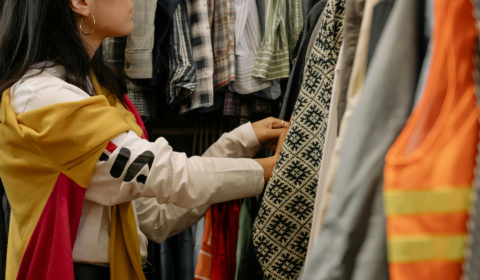Seeking to fight waste and encourage consumers to buy ‘quality over quantity,’ the pre-loved online marketplace has announced it will now prohibit brands including ASOS, boohoo, and SHEIN from being bought, sold, or listed by its users.
Buying second-hand clothing has never been easier or more common.
Offering consumers a way to get money back for former purchases and simultaneously reduce their carbon footprint by giving garments a new lease of life instead of sending them to landfill, platforms offering this service have soared in popularity.
Consistent demand on lower-end sites like Depop, Vinted, and eBay, as well as higher-end brands including By Rotation, Hurr, and The Real Real, mean the pre-loved industry is expected to be worth $84 billion by 2030.
But with dropshipping still rampant, throwaway culture thriving, and seemingly no end in sight to the trend-driven mass-production that’s destroying our planet, resale simply isn’t enough.
Vestiaire Collective has recently decided to prohibit fast fashion brands from being bought, sold, or listed on its global platform as a result of this mounting necessity to be more responsible.
These include ASOS, boohoo, Miss Selfridge, Nasty Gal, and SHEIN, among many – many – others.
Known best for its impressive range of designer goods, the marketplace’s move comes hot on the heels of COP27, where delegates discussed fashion’s impact on the climate and concluded that ‘there is a systemic problem in our economy that is not incentivising circularity and recycling to happen.’
It’s also right on time for Black Friday, an annual event intended to promote impulse spending.
Becoming the first and only company of its kind to enforce such a rule, the ban is in an effort to fight waste and encourage consumers to buy ‘quality over quantity.’





















